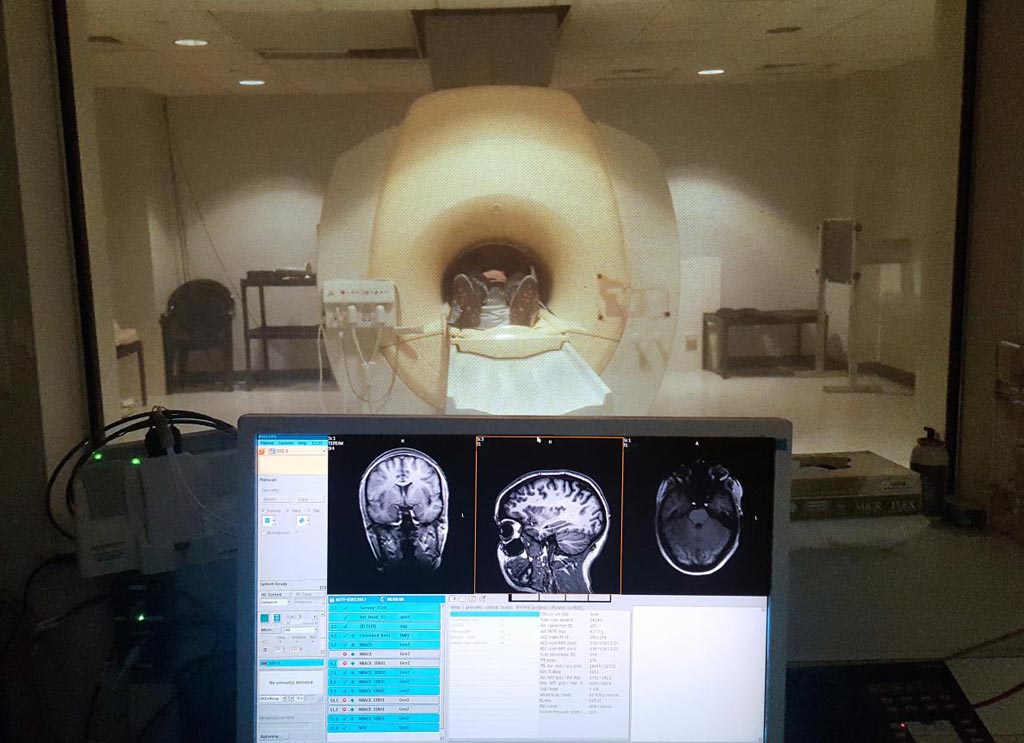Research Shows Connectivity Changes in Brains of Blind People
By MedImaging International staff writers
Posted on 05 Apr 2017
Researchers have shown that the brains of people born blind, or those who became blind at a very early age, ‘rewire’ themselves to boost other senses and cognitive functions.Posted on 05 Apr 2017
The researchers used Magnetic Resonance Imaging (MRI) multimodal diffusion-based and resting state brain imaging techniques to study 12 blind subjects, and 16 normally sighted individuals, all of whom were in the same age range.

Image: One of the participants in an MRI scanner during the study (Photo courtesy of Boston University Medical School Center for Biomedical Imaging).
The researchers from the Massachusetts Eye and Ear Center published the report online in the March 17, 2017, issue of the journal PLOS ONE. The researchers found structural and functional connectivity changes in the scans of the blind subjects. The changes included evidence of enhanced connections between areas of the brain that were not apparent in the control group. According to the researchers this is due to neuroplasticity, which allows our brains to adapt to experiences.
The researchers hope that the new insights will help them to develop improved rehabilitation efforts that will help the blind compensate for the absence of visual information.
Lead author of the study, Corinna M. Bauer, PhD, Schepens Eye Research Institute at Mass. Eye and Ear, said, “Our results demonstrate that the structural and functional neuroplastic brain changes occurring as a result of early ocular blindness may be more widespread than initially thought. We observed significant changes not only in the occipital cortex (where vision is processed), but also areas implicated in memory, language processing, and sensory motor functions.”














